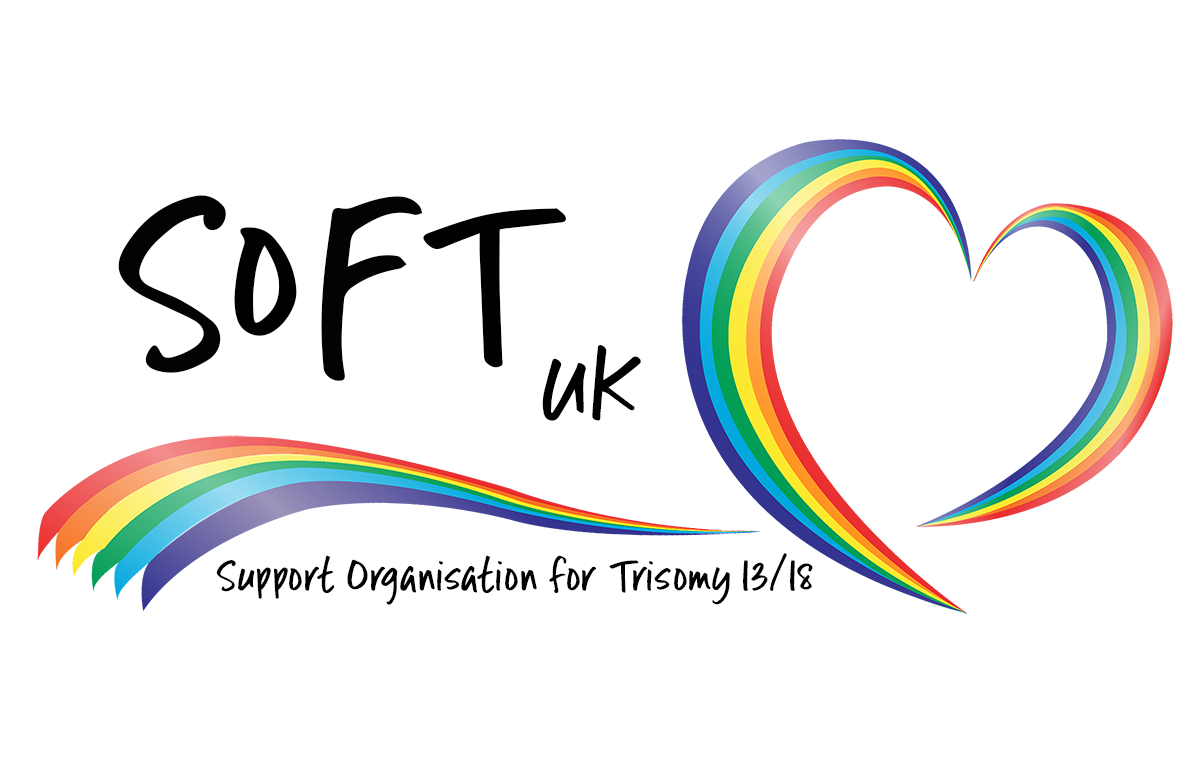Some Common Health Issues
Parents and carers of children with Trisomy 13 or Trisomy 18 often share common concerns about their child's health and how to best address their healthcare needs. These needs can evolve and change as the child grows, sometimes giving rise to new challenges. As a result, treatments and advice may also change to adapt to their development. Each baby and child is unique, and the journey often involves a process of trial and error. For additional expertise and support, we encourage you to join our ‘Living with Trisomy’ Facebook page, where valuable insights can be found.
Constipation
Babies with Trisomy 13 and 18 may be prone to constipation. Discomfort can be relieved by diet, fluids, or medication depending on the cause and severity. Midwives may suggest suppositories for chronic constipation.
American based Trisomy.org has produced Constipation 101 which is a transcript of a Trisomytalk.com video presentation for parents of Trisomy 13, 18 and related disorders. Read the transcript here.
English Charity, ERIC (The Childrens' Bowel and Bladder charity) may also be able to provide some useful information.
Always seek the advice of the baby's doctor or health visitor.
Apnoea Spells
Apnoea is breath holding and happens more frequently in early infancy, especially when a baby has trisomy 13.
The baby stops breathing without warning and becomes limp and blue. Breathing usually starts again after a few moments that will seem like a lifetime.
Parents may consider the use of breathing monitors, and learning simple resuscitation.
The causes need to be investigated so that the appropriate treatment can be prescribed e.g., central apnoea or obstructive sleep apnoea.
Read our blog post How Well Does Your Child Breathe for an insight into one family's experience.
Heart Defects
Heart defects affect about 80% of babies with Trisomy 13, and 90% of babies with Trisomy 18, and may be mild or life threatening.
There are tests to determine the extent of a heart defect, and these will include a physical examination and possibly blood and urine tests.
After reviewing the examinations and tests the heart specialist (cardiologist) will make recommendations about possible treatment and may want to see the child at regular intervals.
Chest X-ray: Provides information about the size and shape of the heart and the lungs.
Electrocardiogram: Electrical impulses generated by the heart beat are recorded on a graph.
Echocardiogram: High frequency sound waves create an image of the heart.
Eye Problems
Chromosome defects can result in the lids not developing and a baby will be unable to see when the eyelids completely cover the eyes, or if the lids are partially separated, and vision will be restricted to looking in one direction only.
The eyeballs may be absent or miniature eye(s) (micro-ophthalmus). Such small eyes often have short or long sight. The cornea is the window of the eye, and an abnormal shape creates a gross distortion of vision.
Absence or poor development of the eye muscles can result in double vision and a squint (strabismus) where the eyes do not move together as a pair, and occasionally the eye will be unable to move in a particular direction.
Seizures
Seizures may describe frequent jitteriness lasting seconds or mild fits that cause the limbs to twitch.
These may do little more than startle the baby, occasionally causing crying, and tend to happen more often when the child is going into or coming out of sleep.
They are called myoclonic jerks and are caused by an excess of electrical activity in the brain.
Kidney and Urine Infections
Kidney defects make babies prone to urinary infections and these should be suspected if the baby develops a fever or other unexplained symptoms.
Recurrent urine and kidney infections may need long term antibiotic therapy although they can eventually lead to renal failure
Heat Sensitivity
Babies with Trisomy 18 may be sensitive to changes of temperature and can become distressed in hot weather.
Pain
The Paediatric Pain Profile (PPP) is a behaviour rating scale for assessing pain in children with severe physical and learning impairments.
You can download the PPP tool as a pdf or order printed copies from their website.
Other Commons Problems Associated with Trisomy 13/18
Babies with Trisomy 13/18 often have a low birth weight, low set ears, heart and eye defects, and unusual palm and fingertip patterns.
The following problems may be present: abdominal defects (omphalocele); cleft lip, and palate; back of head enlarged (occiput); clenched fists, and overlapping index fingers; club/rocker bottomed feet; spina bifida; spine defect (meningomyelocele); defects of the scalp, diaphragm, lungs, kidneys, and ureter; small mouth and jaw; joint contractions (arthrogrypo).
Health Issues- Scotland
If you are caring for a child with Exceptional Health Needs in Scotland then the CEN website is a valuable source of information and resources. http://www.cen.scot.nhs.uk/
Families whose children spend time in hospital or who are admitted to hospital in emergency might want to look at the sections on care planning procedures, which you may want to discuss with professionals working with your child.
As a partner organisation, SOFT UK also has the opportunity to participate in their research programmes, which help inform policy and practice in the NHS and the wider multi-agency framework.

